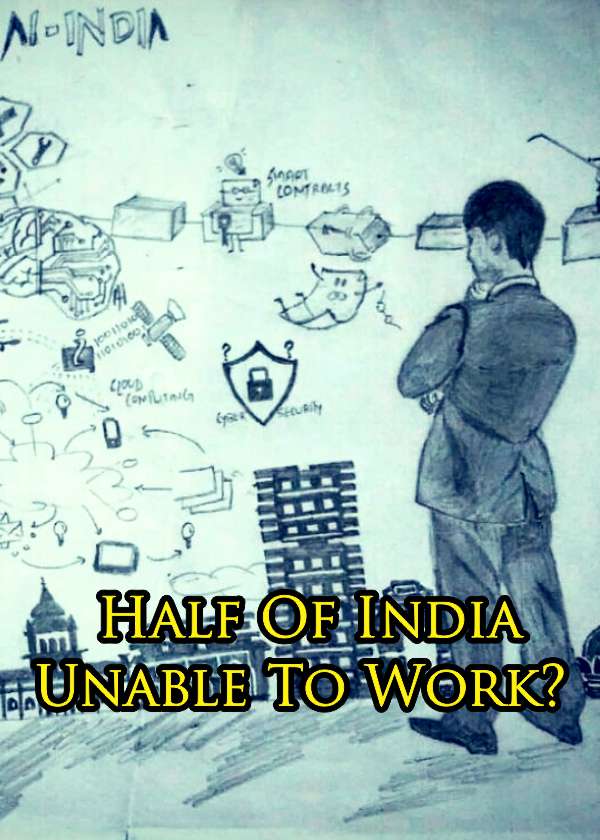Half Of India Unable To Work?
Half Of India Unable To Work?


Gartner report says by 2020, AI will create 2.3 million jobs while eliminating 1.8 million old jobs. But the contention with these words is, will AI generate the same jobs for the same people it will eat up from. That's quite not possible. Well, let's retrospect for a minute.
From 2004-2014 every second odd youth was working in a call-centre to earn an easy buck, but as technology advanced we witnessed the rise of robots and today most of the customer call services are handled by bots. And just like that it's on the verge of obsolescence. Many significant innovations always are associated with a transition period of temporary job loss and then gradually recovery follows leading to business transformation and AI is bound to follow the same route. Most calamitous thought about job losses is to confuse AI with automation.
This basically overshadows of its actual purpose which is AI-augmentation, which is nothing but a combination of human and artificial intelligence, where both complement each other. Hence the only actuation needed is to incorporate Al into the work processes of knowledge workers, a robo-employee in the making. AI will directly impact repetitive, mundane and non value adding tasks, thus freeing up humans for other activities. This opportunity should be used by the humans to upskill themselves.
Why has this upskilling become necessary now? Almost every sector is showing signs of breaking through the barrier of traditional techniques and enter into the uninhibited agile and tech-savvy world. Be it manufacturing, textile, agriculture, construction, education, energy or defence. Each one of them is a potential employer of Big data, Blockchain, IoTs, AI, Genomics, Machine learning, Deep learning, Cognitive technology and Cloud computing. All this makes it more and more imperative to get upskilled in these techs to stay relevant, no matter you are employed right now or not.























